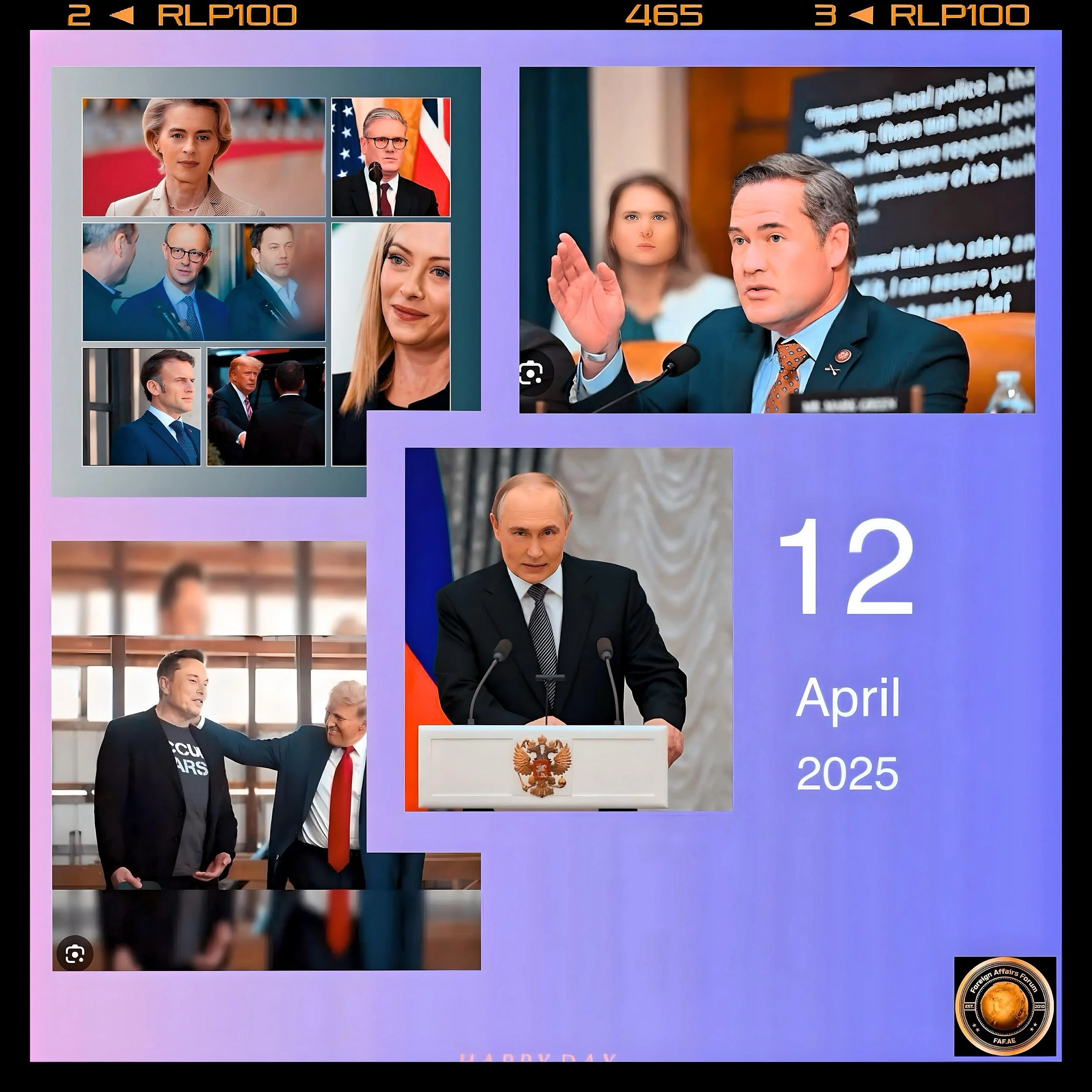Trump’s Africa Strategy: Minerals, Military Bases, and Diplomatic Reshuffling
Introduction
Trump’s re-engagement with Africa reflects a strategic shift toward transactional diplomacy, resource access, and countering Chinese influence while reducing America’s diplomatic footprint.
His administration has made headline-grabbing moves regarding Rwanda, Congo, and Somaliland and planned embassy closures, suggesting a focused rather than comprehensive approach to African relations.
Trump’s Ultimatum to Rwanda Over Congo Conflict
President Donald Trump has reportedly issued a stark ultimatum to Rwanda’s President Paul Kagame, demanding the withdrawal of support for M23 rebels operating in the Democratic Republic of Congo (DRC).
According to recent reports, Rwanda has been given a 48-hour ultimatum to end its alleged backing of the rebel group.
This confrontational approach comes after high-level negotiations between the U.S. and DRC President Felix Tshisekedi.
During his visit to the region, Massad Boulos, Trump’s senior adviser for Africa, reaffirmed Washington’s position, stating that “Rwanda should cease all military support of M23 and withdraw all Rwandan troops from DRC territory”.
While addressing the situation, Boulos also recognized Rwanda’s security concerns regarding the Democratic Forces for the Liberation of Rwanda (FDLR), whose members are blamed for the 1994 genocide.
He emphasized that any peace deal must ensure all parties “feel safe from any such threats, whether actual or perceived or any future threats.”
The urgency behind this ultimatum appears linked to America’s strategic interest in Congo’s vast mineral resources.
The DRC holds some of the world’s largest deposits of cobalt, copper, and rare earth minerals, critical for modern technology.
With China controlling approximately 90% of global rare earth supplies, the U.S. is “scrambling to secure the remaining 10% in Congo”.
This resource competition has intensified amid escalating U.S.-China trade tensions.
Embassy Closures and Diplomatic Restructuring
Contrary to claims that Trump plans to shut down all U.S. embassies in Africa, the administration targets specific diplomatic missions for closure.
Emiratis in the Central African Republic, Congo, Eritrea, Gambia, Lesotho, and South Sudan, as well as consulates in Douala (Cameroon) and Durban (South Africa), are earmarked.
These closures are part of a broader effort to slash the federal budget, spearheaded by a new government efficiency office overseen by Elon Musk.
The internal memo proposing these reductions suggests replacing closed embassies with “neighboring missions” and introducing “dual-hatted leadership” in some locations.
The impact on Africans seeking U.S. visas could be significant, potentially requiring costly travel to neighboring countries to apply for already expensive visas.
However, the State Department has been cautious about confirming these plans, with spokeswoman Tammy Bruce describing such figures as “premature or inaccurate.”
Strategic Interests Driving Trump’s Africa Policy
Trump’s approach to Africa represents a fundamental shift from traditional U.S. policy, focusing more on trade and less on aid—a change that previous administrations discussed but never fully implemented.
This shift is being fast-tracked, with African officials understanding they need to offer tangible benefits to secure U.S. support.
The DRC has become a focal point of this strategy, offering “access to critical minerals in exchange for U.S. help battling rebel forces.”
Trump’s family connections play a role here, with Massad Boulos, father-in-law of Trump’s daughter Tiffany, appointed to explore potential mineral deals in the DRC and other African countries.
Other strategic priorities include
Security operations against terrorist groups, exemplified by Trump’s early airstrike on Islamic State militants in Somalia, which he announced with characteristic bravado on social media: “WE WILL FIND YOU, AND WE WILL KILL YOU!”
Countering Chinese influence, particularly in regions with strategic resources or military significance
Pushing African governments to invest more in their public services rather than relying on U.S. aid
The Potential Recognition of Somaliland
Perhaps the most significant diplomatic move under consideration is the recognition of Somaliland, which declared independence from Somalia in 1991 but has yet to receive international recognition.
Support for recognizing Somaliland has grown strong among Republican US-Africa policy leaders, right-leaning think tanks, and likely Africa advisors in Trump’s White House.
The Trump administration is reportedly considering partial recognition of Somaliland in exchange for permission to establish a naval base near the port of Berbera on the Red Sea coast.
This would provide strategic advantages for monitoring regional security threats and Chinese activities.
Somalilanders hope that Trump will make this historic move. As one university student in Hargeisa expressed, “Donald is our savior. He is a wise and practical man. God bless America.”
However, Mogadishu people view the prospect with alarm, with one data analyst stating, “I am spitting fire.”
Republican Congressman Scott Perry has already introduced a bill proposing formal U.S. recognition for Somaliland, and the Heritage Foundation’s Project 2025 roadmap for Trump’s second term explicitly recommends “the recognition of Somaliland statehood as a hedge against the US’s deteriorating position in Djibouti.”
Trump’s Engagement with Burkina Faso
Trump has also engaged with Burkina Faso’s leader, Ibrahim Traoré, who has survived numerous assassination attempts.
In his communication, Trump advised Traoré to “stay vigilant and resist international pressures” that could compromise national security.
He warned that organizations like the United Nations and African Union may have agendas that don’t align with countries facing direct terrorist threats.
Despite his critical stance toward the international community, Trump praised Traoré’s resilience, reportedly stating: “Surviving 18 assassination attempts, that takes guts.
The man’s a fighter, and whether you agree with his methods, he’s shown an incredible will to survive. “
This engagement comes as Burkina Faso and Rwanda have formed a military alliance that could reshape regional security dynamics.
The partnership appears designed to reduce Western influence while strengthening African security cooperation.
Conclusion
A Transactional Approach to Africa
Trump’s Africa policy reflects his broader foreign policy approach: transactional, focused on U.S. economic and strategic interests, and skeptical of traditional aid and diplomatic structures.
When aligned with American interests, the administration appears willing to make unconventional moves, like potentially recognizing Somaliland or issuing ultimatums to Rwanda.
While some African leaders may find opportunities in this approach by offering resources or strategic cooperation, others may struggle with reduced aid and diplomatic presence.
The emphasis on minerals, military bases, and countering terrorism and Chinese influence suggests that Trump’s interest in Africa is selective rather than comprehensive, concentrated on specific countries and resources rather than continent-wide engagement.
Trump’s administration has no notification addressing the Somalia kidnapping of Somaliland citizens issue, though there are historical references to abductions in the region.
The coming months will likely reveal whether Trump’s bold diplomatic moves in Africa yield the strategic advantages his administration seeks or whether they further complicate America’s standing on a continent increasingly courted by China and other global powers.





